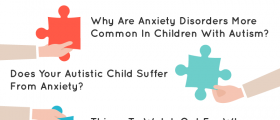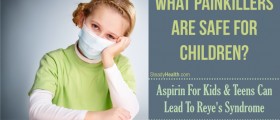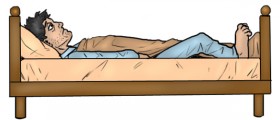
Tics can be described as involuntary movements or sounds than appear repeatedly, for no particular reason. The most common forms of tics are throat clearing and eye blinking. Usually, once a person is bothered by tics, the whole matter escalates during stressful periods, or times of anxiousness and severe fatigue.
Various other things can lead to tics. Therefore, it is very important to have your tics under control, knowing what causes them and what their characteristics are. The following lines can help you with obtaining such information, so feel free to read on.
What are Tics, What is Tourette Syndrome?
As it was mentioned above, tics are involuntary movements of certain body parts, appearing for no particular reasons. However, various factors can trigger them and one of these causes are even some types of medications that the patient is taking.
While tics are considered to be a separate disorder, Tourette syndrome is a subtype of tics. Namely, if a child has Tourette syndrome, he/she is likely to repeat specific movements and sounds. Note that tics can appear in groups, several at a time, even though they do not always do.
In children usually start having tics between the age of 3 and 10, in case they are suffering from Tourette syndrome. The deceiving factor which makes parents not worry about this condition is the fact that the tics come and go. Also, sometimes, the child may have tics and not suffer from Tourette syndrome.
Also, one might get a wrong impression regarding this disease once he/she pays attention to the display of Tourette syndrome in the popular media. There, this condition usually manifests through a person cursing or shouting some offensive words, experiencing some forms of physical tics at the same time. Yet, this sort of occurrence is very rare and most people who suffer from this condition do not have such symptoms.
Will Your Child Outgrow This?
Tics usually go away a couple of months after they appear. Nevertheless, one might be bothered by tics for much longer, experiencing them for years or even decades. In children, however, the escalation of this condition appears between the age of 9 and 13, gradually improving as the child gets older. Therefore, less than 50% of all children who suffer from Tourette syndrome have tics with them even when they grow up. Subsequently, in a majority of cases, tics or this syndrome do not require any special treatments, even though medications can help greatly.
All in all, a child cannot possibly stop his/her tics once these appear. Do not try to talk your child out of them or emphasize their presence. This might result in increased levels of stress and the worsening of the problem. Rather, learn more about tics and the Tourette syndrome and help your child in the most constructive and effective way possible.
Thus, even though your child may outgrow his/her tics and the Tourrete syndrome altogether, it is best not to take any chances and seek proper medical diagnosis and treatment. After all, in many cases, this syndrome does not appear on its own. Rather, it occurs hand-in-hand with several behavioral disorders, including ADHD, OCD, learning disorders and other such issues, making treatment and diagnosis even harder, due to the complexity of the condition itself.
Is There any Treatment?
In order for this condition to be properly and successfully treated or managed, several steps need to be taken. First of all, the child's detailed medical history and records regarding the onset of the symptoms need to be obtained. If the syndrome was present in the family of the child, this needs to be noted too. Once this is done the observations of one's condition take place, being described in details. Finally, this whole process is followed by observations and questions for referral.
Parents, teachers and therapists are all involved in the treatment. Once these factors are covered, the effectiveness of treatment improves significantly, decreasing the need for medications by about 50%. This form of improvement has been noted over the past 15 years.
Behavior treatment is one of the best forms of therapy when it comes to dealing with Tourette syndrome. Here, through positive reinforcement, an individual manages to overcome his tic problems.
Sometimes, if necessary, pharmacological assistance may be required. Usually, the lowest dosage of medications is used for these purposes, being adequate enough for keeping the symptoms under control.
All in all, Tourette syndrome affects many children, reaching its peak between the year of 9 and 13. However, the most important steps to take is to diagnose this condition timely and seek proper treatment, which can be either through behavior therapy and administration of medications. The two forms of treatment can be applied separately or combined, depending on the effect. On average, 15% of cases of Tourette syndrome require medications as a part of treatment.

















Your thoughts on this
Loading...